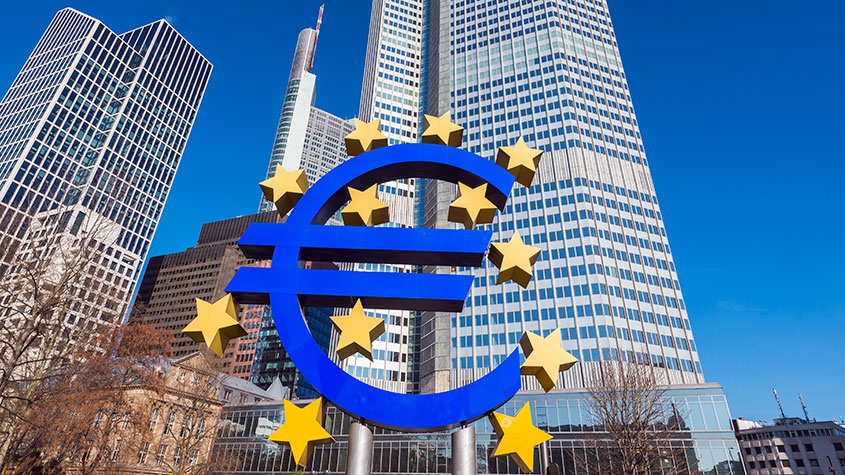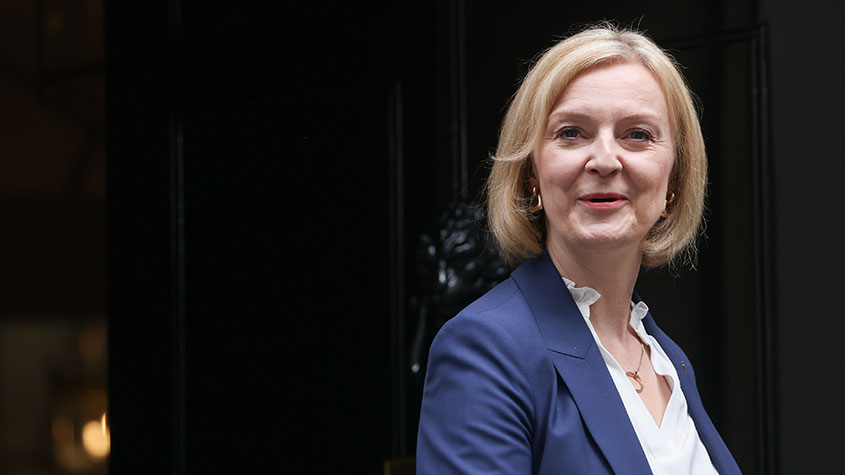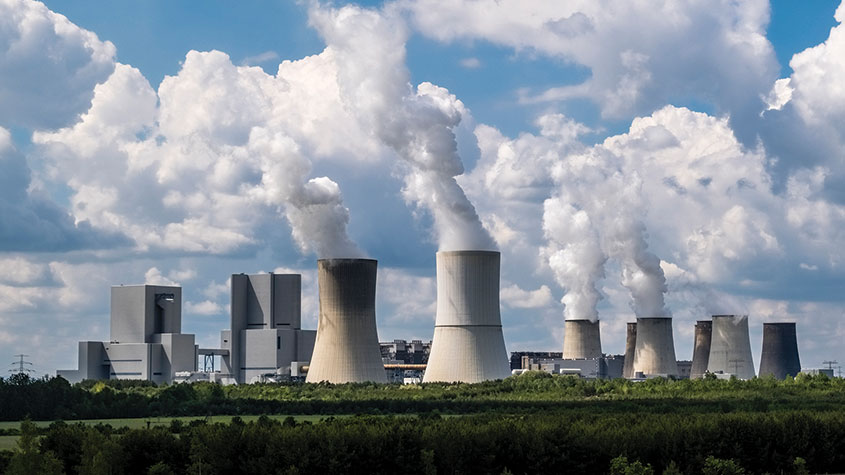EU throws green spanner in the works of global trade
Europe has big plans for the environment – but making them work without damaging world trade will be a challenge.

Get the latest financial news, insights and expert analysis from our award-winning MoneyWeek team, to help you understand what really matters when it comes to your finances.
You are now subscribed
Your newsletter sign-up was successful
Want to add more newsletters?

Europe is about to "stake its economic future on an environmental clean-up that will overhaul the way the world's biggest single market polices businesses and manages trade relations", say Ewa Krukowska and Jonathan Stearns on Bloomberg. Under the "European Green Deal" announced by the new European Commission president, Ursula von der Leyen, the EU transition to climate neutrality would start next year. It is set to include stricter emission limits, updated energy taxes, new rules on subsidies, greener farming and a possible environmental import tax. The EU also hopes to catalyse global action and uphold the Paris Agreement. The US has "turned its back on the accord" and some of the world's biggest carbon dioxide emitters including China, India and Japan have "so far failed" to translate their pledges into action.
Grand ambition, limited tools
Although an overwhelming majority of EU citizens support climate action (93%) and it was the Green Deal which helped to clinch von der Leyen's appointment, with the European Parliament's "fragmented" political groups largely uniting behind her programme, it paves the way for "months of lobbying and political fighting". The rules require the support of EU governments and the bloc's assembly. "Expect every word and comma to be analysed by national governments, parliamentarians, companies, industry lobbies and environmental activists."
Nor will opposition be limited to the EU, says Alan Beattie in the Financial Times. For growing numbers of developing countries, "translating these European ideals into trade policy evokes darker traditions of protectionism and oppression". Brazil's president, Jair Bolsonaro, and Malaysia's prime minister, Mahathir Mohamad, whose countries stand to lose access to the EU market because of poor environmental stewardship, have even used the word "colonialism". If the likes of Brazil and Malaysia divert trade to economies with less stringent criteria, the EU's actions could prove counterproductive.
Try 6 free issues of MoneyWeek today
Get unparalleled financial insight, analysis and expert opinion you can profit from.

Sign up to Money Morning
Don't miss the latest investment and personal finances news, market analysis, plus money-saving tips with our free twice-daily newsletter
Don't miss the latest investment and personal finances news, market analysis, plus money-saving tips with our free twice-daily newsletter
The truth is, von der Leyen's team have "limited tools" to combat climate change without causing problems to international trade. Some measures, such as standardising low-energy designs for electrical goods, may be relatively simple, but "heavier-duty policies" such as extending the EU's emissions trading scheme to shipping and aviation are much harder as they become international issues. The idea of a carbon border tax (an import tariff equal to the difference between the EU carbon price and that of the exporting country) would, in practice, be "fiendishly difficult" to implement because of the complexity of international supply chains. The EU would need to assess the carbon footprint of each imported component. The EU's ambition has the potential to "cause diplomatic conflicts across the world".
There are other obstacles, says Jillian Ambrose in The Guardian. Take the Energy Charter Treaty, an "obscure" cold-war-era policy designed to protect Western energy firms, which is increasingly being used to challenge climate policies. Unless it undergoes a "fundamental overhaul" it will continue to put a spanner in the works. More generally, we also have to face some harsh facts, says The Economist. To "stand a good chance of scraping under the 2% target" (the maximum temperature rise over pre-industrial levels as decreed by the Paris climate agreement) would "require cuts far more stringent than the large emitting nations are currently offering". As a result, the accord also envisages significant carbon capture and storage. On this front, there is an "encouraging buzz, but not yet much more".
Get the latest financial news, insights and expert analysis from our award-winning MoneyWeek team, to help you understand what really matters when it comes to your finances.

Emily has worked as a journalist for more than thirty years and was formerly Assistant Editor of MoneyWeek, which she helped launch in 2000. Prior to this, she was Deputy Features Editor of The Times and a Commissioning Editor for The Independent on Sunday and The Daily Telegraph. She has written for most of the national newspapers including The Times, the Daily and Sunday Telegraph, The Evening Standard and The Daily Mail, She interviewed celebrities weekly for The Sunday Telegraph and wrote a regular column for The Evening Standard. As Political Editor of MoneyWeek, Emily has covered subjects from Brexit to the Gaza war.
Aside from her writing, Emily trained as Nutritional Therapist following her son's diagnosis with Type 1 diabetes in 2011 and now works as a practitioner for Nature Doc, offering one-to-one consultations and running workshops in Oxfordshire.
-
 Three Indian stocks poised to profit
Three Indian stocks poised to profitIndian stocks are making waves. Here, professional investor Gaurav Narain of the India Capital Growth Fund highlights three of his favourites
-
 UK small-cap stocks ‘are ready to run’
UK small-cap stocks ‘are ready to run’Opinion UK small-cap stocks could be set for a multi-year bull market, with recent strong performance outstripping the large-cap indices
-
 No peace dividend in Trump's Ukraine plan
No peace dividend in Trump's Ukraine planOpinion An end to fighting in Ukraine will hurt defence shares in the short term, but the boom is likely to continue given US isolationism, says Matthew Lynn
-
 Europe’s new single stock market is no panacea
Europe’s new single stock market is no panaceaOpinion It is hard to see how a single European stock exchange will fix anything. Friedrich Merz is trying his hand at a failed strategy, says Matthew Lynn
-
 Britain’s inflation problem
Britain’s inflation problemInflation in the UK appears to be remaining higher for longer when compared with similar rich countries. Why? And when can we expect a return to normal? Simon Wilson reports.
-
 Eurozone inflation hits 10.7% in October
Eurozone inflation hits 10.7% in OctoberNews Inflation across the eurozone hit 10.7% in October. What does it mean for your money?
-
 A forgotten lesson on the dangers of energy price caps
A forgotten lesson on the dangers of energy price capsAnalysis Liz Truss’s proposed energy price cap is an ambitious gamble. But a similar programme in Spain ended up being a fiasco, say Max King and Tom Murley. Here, they explain why Truss’s plan could be doomed to failure.
-
 Don't be scared by economic forecasting
Don't be scared by economic forecastingEditor's letter The Bank of England warned last week the UK will tip into recession this year. But predictions about stockmarkets, earnings or macroeconomic trends can be safely ignored, says Andrew Van Sickle.
-
 The wolf returns to the eurozone’s door
The wolf returns to the eurozone’s doorEditor's letter The eurozone’s intrinsic flaws have been exposed again as investors’ fears about Italy’s ability to pay its debt sends bond yields soaring.
-
 Eurozone economy heads for paralysis
Eurozone economy heads for paralysisNews Record high energy prices, the threat of recession in Germany and squabbling in Italy's government has left the eurozone fighting fires on all fronts.